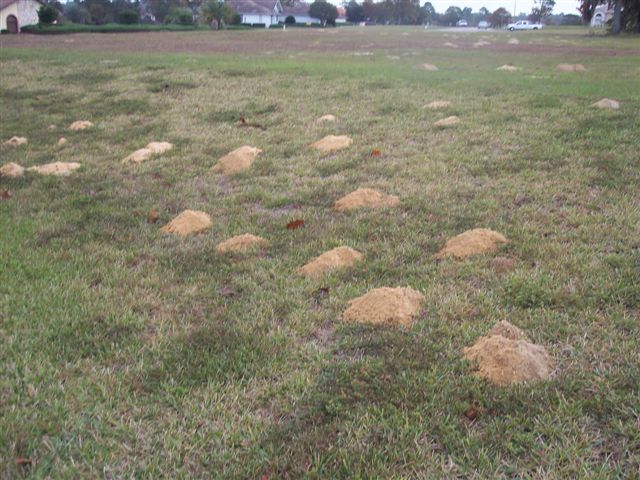This is one of my biggest pet-peeves. Sigh...moles, gophers, shrews are wonderful slaves for a garden...AND a lawn! Problem is that they don't let you know in advance when they will be burrowing and present before your garden party...those hills of soil mean aeration! Just rake or blow them down into your lawn. And usually there is only one or two animals 'making this mess'...people paid me a lot of money to go dump piles of topsoil/gro-co on their lawns and to rake it in. They do it for free. Their main diet is grubs in the soil, not your plants. Once in a while they might chew on your bulbs (especially if the bulb is full of larvae, grubs) or plant roots when low on the insects they'd prefer.
Problems arise if the homeowner applies pesticide to their lawns/beds to kill grubs. Kills their pantry and they'll nibble on plant roots, bulbs instead. Voles especially can be a problem during the winter and early spring months. They love to hang out in thick mulch to keep warm and if there are trees, shrubs, perennials, bulbs nearby well they will eat roots and girdle stems.
Stay with organic and minimal killing of animals and insects. There is a nice, stable environment that will accommodate your plants, vegetables and these tiny mammals. Killing rodents or these soil burrowing mammals does absolutely no good. There are always more to fill the niche.
Do the screen beneath the soil to 2'...keep your plants in a hoop house or greenhouse to prevent rabbits, deer from eating your garden. The more you try to control with chemicals the more you open your environment up to even more problems. Adopt a more relaxed attitude towards 'damage'...take this seriously. If you don't you'll keep making more problems and soon will be an ex-gardener. There is usually plenty for you and your homestead critters!

